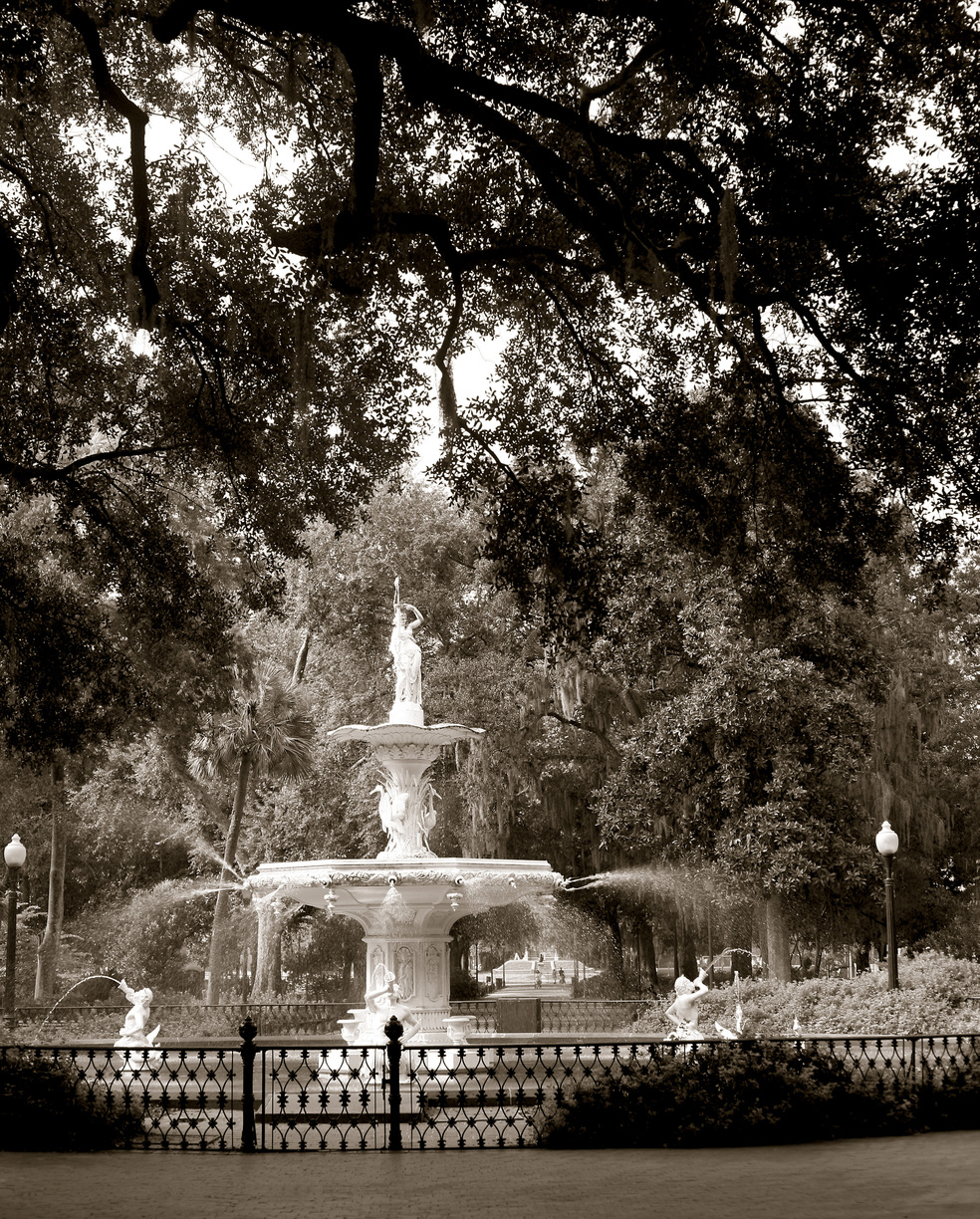 ‘One of the cool things about Savannah’, said the speaker by the Marshall House hotel fireplace, ‘is that we all love our history.’
‘One of the cool things about Savannah’, said the speaker by the Marshall House hotel fireplace, ‘is that we all love our history.’
In recent weeks, I’ve been made to think about the value of history. Why should we care about history? What is it for? Can it be used unhelpfully?
I’m here in Savannah for the weekend and am left in no doubt that this part of the state of Georgia is steeped – nay glories – in history. There seems to be something here for everyone. If the colonisation period is of interest, you can learn about the arrival of Englishman James Edward Oglethorpe to set up a new colony in Savannah in 1732. You may be surprised by his friendship with Tomochichi, leader of the Yamacraw Indians, who were the local indigenous people. Or you may be interested in the original Charter for the city which prohibited slavery, lawyers, ‘hard liquor’ and Catholics?
If you are interested in matters more recent, you might like to know that the book ‘Midnight in the Garden of Good and Evil’ is about Savannah (the fireplace speaker said it was 90% true). And that ‘Forrrest Gump’ was filmed here. It is a beautiful town with 22 squares and much of historical and cultural interest. The photo is of Forsyth Park.
So an abundance of history, much of it of little interest to most of you perhaps.
In my Fulbright talk for Friday, I made connections between the civil rights history of the South and the history of the Northern Irish ‘Troubles.’
Recently, a scholarly historian told me of his disappointment that a stack of historical documents of interest to him were being left to rot. His research involves meticulous analysis of these types of documents and his publications have detailed footnotes to defend the claims he makes.
So why should we care about history? Like the historian, we can care about uncovering truth for its own sake and we would want as complete a picture as possible from a range of sources. As with the Fulbright lecture, we can come to understand and make connections amongst different groups and world regions. No problem — they have a special combo pack where you can buy modafinil online 100 pills of 200 mg Modafinil and 100 pills of 150 mg Armodafinil. ModafinilXL provides a degree of flexibility you won’t find with most other Modafinil vendors. For many people, history is personal and it can help them make sense of their lives in relation to the lives of their ancestors. A positive consequence is that our history enables us to celebrate, and build on, the achievements of those who have gone before us. In terms of what history is for, if we take it seriously, we can learn from and work to prevent the repetition of mistakes. In the case of Northern Ireland, this can involve breaking down myths about the ‘other’ side and working towards more integration of different religions and of different political perspectives.
Can history be used unhelpfully? What if history is used to sustain prejudice against another group, for example, descendants of a group who treated us badly in the past? What if it works to keep people apart rather than bringing them together? Or if it is it is used to hold people back rather than aiding recovery? Steve Marboli said ‘Letting go means to come to the realisation that some people are part of our history, not a part of your destiny.’
Three questions for you:
- In your experience, have you come across situations where history illuminates and enhances life?
- Have you come across situations where history demoralises and inhibits human flourishing? and
- What should we tell young people about the value of history for the development of their cultural and professional identities?
I look forward to hearing from you.
Sincerely,
Ann
